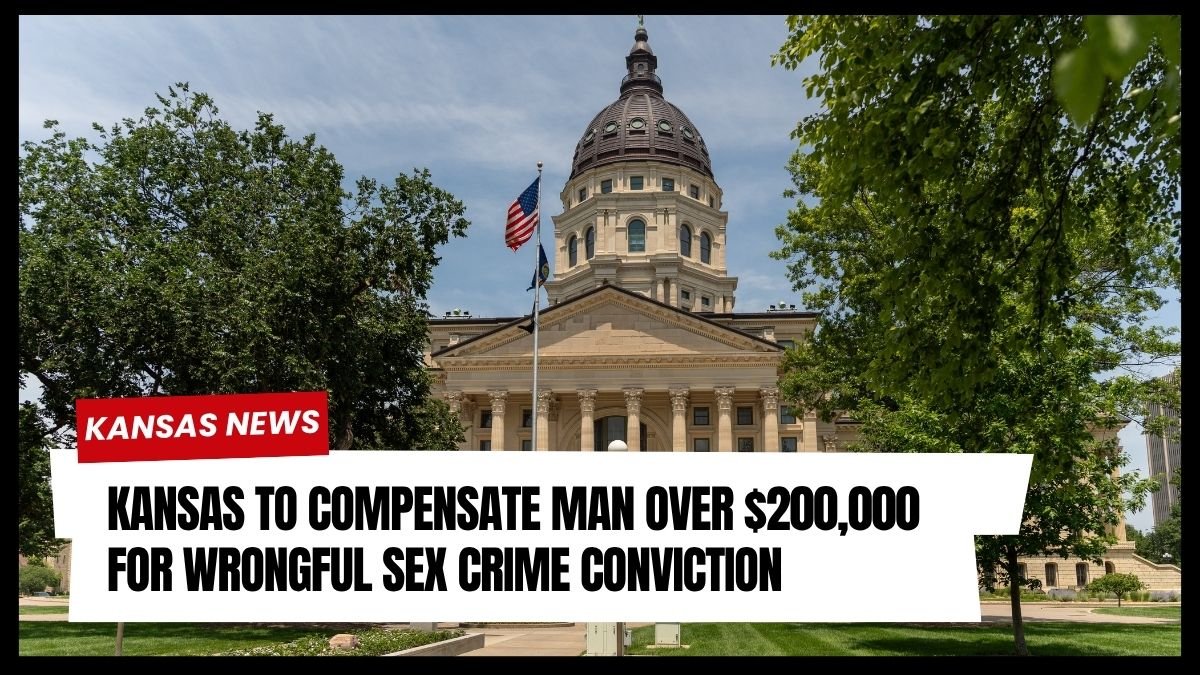In a significant development regarding wrongful convictions, a Shawnee County judge and the Kansas attorney general have approved a settlement exceeding $200,000 for Anthony Bowers, a man who was wrongfully convicted of rape and spent three years in prison.
The compensation, which includes legal fees, comes after Bowers was acquitted of two charges and faced a hung jury on the remaining charge.
Key Facts About the Settlement
- Compensation Amount: $182,650 for three years of imprisonment, with approximately $25,000 allocated for legal fees.
- Approval Process: The Kansas State Finance Council, consisting of state leaders like Gov. Laura Kelly, Senate President Ty Masterson, and House Speaker Dan Hawkins, did not need to approve the settlement, as the decision was already approved in Shawnee County District Court.
- Legal Process: Under Kansas law, wrongful conviction petitions are processed by the Attorney General’s office, with the court making the final decision. In this case, Judge Teresa Watson from Shawnee County District Court ruled on Bowers’ petition.
Bowers’ Legal Journey
Bowers’ case is one that involved multiple trials:
- First Trial: In Jackson County, Bowers was the subject of a hung jury on charges including rape and aggravated sodomy.
- Second Trial: He was convicted on all charges and sentenced to three consecutive life terms, with a minimum of 25 years in prison. This conviction was later overturned due to the improper testimony of an unqualified expert witness.
- Appeal: The Kansas Court of Appeals reversed the convictions, citing that testimony from the prosecution’s witness, Jill Shehi-Chapman, was improper since she wasn’t certified as an expert witness on the behavior of sexual abuse perpetrators.
- Third Trial: During the third trial, Bowers was acquitted of rape and aggravated sodomy. However, the jury was hung on the aggravated indecent liberties charge, and the prosecutor chose not to retry him.
After the appellate ruling, the prosecutor decided not to continue with the fourth trial due to concerns over the passage of time and inconsistencies in the evidence.
Kansas State Finance Council Approves Budget Measures
Supplemental Nutrition Assistance Program (SNAP) Update
The Kansas State Finance Council has also made crucial decisions regarding state expenditures:
- $10 Million Release: The council approved the release of $10 million for the Kansas Department for Children and Families (DCF) to cover state expenditures for the current fiscal year.
- SNAP Restrictions: The council agreed to transfer an additional $1.8 million to DCF for the implementation of new guidelines regarding the use of Supplemental Nutrition Assistance Program (SNAP) funds. The proposal seeks to restrict recipients from using food stamps to purchase candy or soft drinks, a plan which was first submitted to the U.S. Department of Agriculture (USDA) and later resubmitted after a veto from Gov. Laura Kelly.
Challenges in Implementation
- Veto and Legislative Back-and-Forth: The proposal to limit SNAP expenditures on non-essential food items like candy and soda faced political hurdles. While the governor initially vetoed the budget measure, the Republican-led Legislature overrode the veto, leading to the resubmission of the proposal to the USDA.
- Administrative Issues: DCF Secretary Laura Howard acknowledged the administrative error in handling the proposal and apologized for the confusion, promising that the request to USDA would not be withdrawn again.
This case sheds light on the critical issue of wrongful convictions and the complex legal battles that follow. Anthony Bowers’ settlement serves as a reminder of the importance of fair trials and the need for accountability in the judicial system.
Meanwhile, the Kansas State Finance Council’s approval of new SNAP restrictions indicates the state’s ongoing efforts to regulate public welfare expenditures, although the proposal faces its own set of challenges and administrative hurdles.



